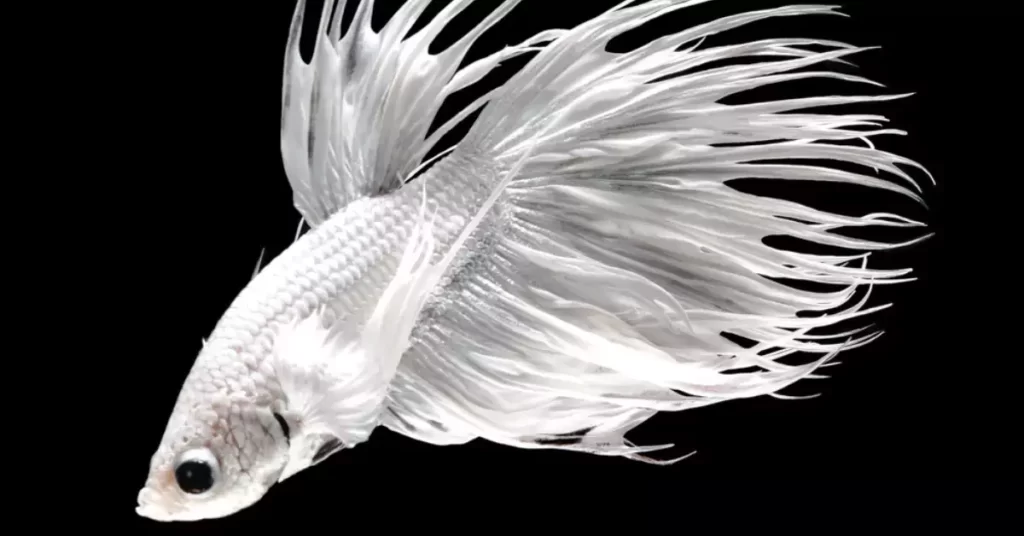A common question among aquarium hobbyists is whether betta fish can eat tropical fish food.
In this comprehensive guide, we’ll explore the nutritional requirements of betta fish, compare them to tropical fish food, and discuss the suitability of feeding your betta tropical fish food. Let’s dive in!
The Nutritional Needs of Betta Fish
Carnivorous Diet
Betta fish, also known as Siamese fighting fish, are carnivorous by nature. In the wild, they primarily feed on insects, insect larvae, and small crustaceans. As such, they require a diet high in protein to thrive.
Essential Nutrients
A balanced betta fish diet should consist of a variety of nutrients, including proteins, fats, vitamins, and minerals. These nutrients are vital for their growth, energy, and overall health.
Comparing Betta Fish Food and Tropical Fish Food
Protein Content
Tropical fish food is formulated for a wide range of fish species, which have different dietary requirements. As a result, tropical fish food tends to have a lower protein content compared to betta fish food.
Ingredients
Tropical fish food may contain more plant-based ingredients, such as algae, spirulina, and vegetable matter. In contrast, betta fish food is formulated with more animal-based proteins, like fish meal, shrimp meal, and bloodworms.

Feeding Your Betta Tropical Fish Food
Occasional Substitute
While it’s not ideal, betta fish can eat tropical fish food in small quantities as an occasional substitute. However, it should not be their primary food source, as it lacks the necessary protein and nutrients they need.
Supplement with High-Protein Foods
If you’re feeding your betta tropical fish food, ensure you supplement their diet with high-protein foods like brine shrimp, bloodworms, and daphnia to maintain their health.
Choosing the Right Betta Fish Food
Pellets and Flakes
High-quality betta pellets and flakes are specially formulated to meet the nutritional needs of betta fish. Look for products with high protein content and primarily animal-based ingredients.
Live and Frozen Foods
Feeding your betta live or frozen foods, such as bloodworms, brine shrimp, or daphnia, provides additional protein and nutrients. These foods can be used as treats or supplements to their regular diet.
Feeding Tips for Betta Fish
Monitor Quantity
Overfeeding can cause health issues for betta fish, so it’s essential to monitor the quantity of food you provide. A good rule of thumb is to feed them an amount they can consume within two minutes.
Maintain a Feeding Schedule
Establish a consistent feeding schedule for your betta fish, typically once or twice a day. This helps maintain their overall health and reduces the risk of overfeeding.
Remove Uneaten Food
To prevent water quality issues and maintain a clean tank, always remove uneaten food after feeding your betta.
FAQs
Can betta fish eat tropical fish food?
Betta fish can eat tropical fish food in small quantities as an occasional substitute. However, it should not be their primary food source, as it lacks the necessary protein and nutrients they need.
What should I feed my betta fish?
Betta fish require a high-protein diet consisting of betta pellets or flakes, supplemented with live or frozen foods like bloodworms, brine shrimp, or daphnia.
How often should I feed my betta fish?
Betta fish should be fed once or twice a day, providing an amount they can consume within two minutes.
Can I feed my betta fish only live or frozen food?
While live and frozen foods are excellent sources of protein and nutrients for betta fish, they should not be the sole component of their diet.
A balanced diet should include high-quality betta pellets or flakes, which provide a variety of essential nutrients, along with occasional supplementation of live or frozen foods.
How can I tell if my betta fish is overfed?
Overfeeding can cause health issues in betta fish, including constipation and swim bladder disorders.
Signs of overfeeding may include a bloated appearance, difficulty swimming, or floating at the water’s surface.
To prevent overfeeding, follow a consistent feeding schedule, and provide an appropriate amount of food that your betta can consume within two minutes.
In Summary
While betta fish can eat tropical fish food in small quantities, it’s not the ideal choice for their diet due to its lower protein content and higher plant-based ingredients.
To ensure your betta fish thrives and stays healthy, it’s crucial to provide them with a balanced diet specifically formulated for bettas, which includes high-quality betta pellets or flakes and occasional supplementation with live or frozen foods.
In addition to choosing the right food, maintaining a consistent feeding schedule, monitoring the quantity of food, and removing uneaten food will help keep your betta fish healthy and their environment clean.
By understanding the unique dietary needs of betta fish and providing them with the appropriate food, you’ll be well on your way to ensuring a happy and healthy betta fish.